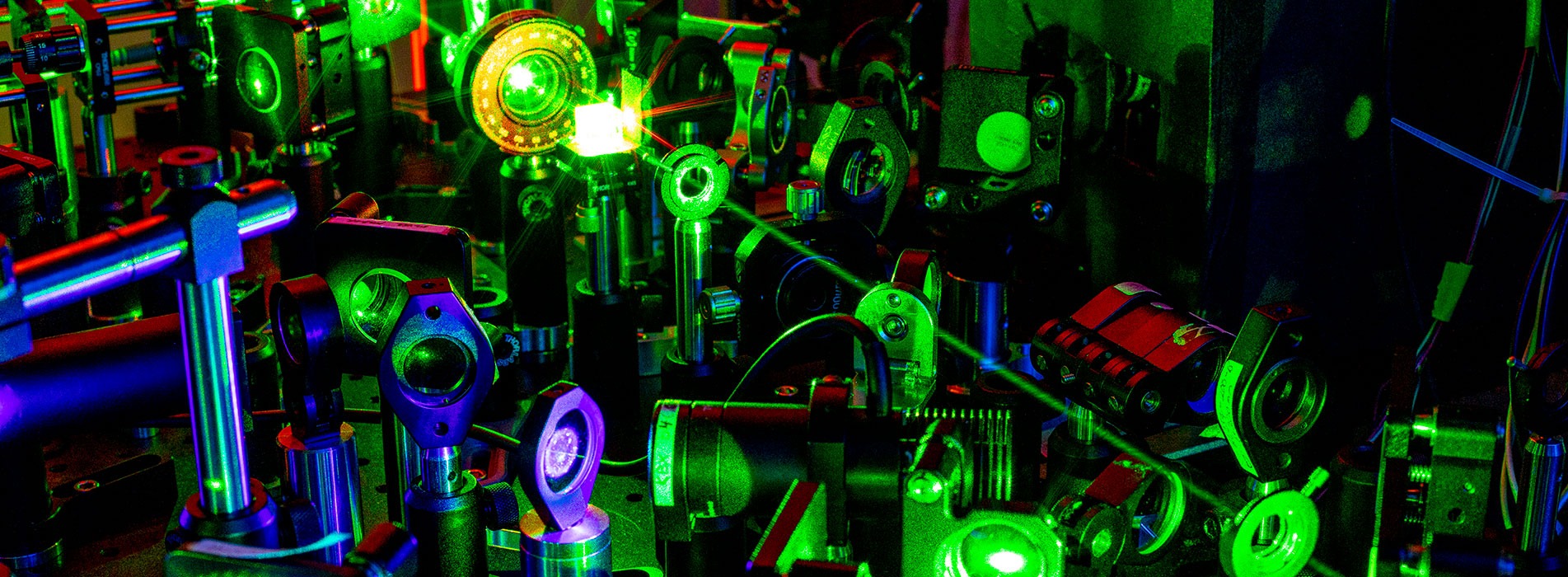By Nancy Allbritton, Frank & Julie Jungers Dean of the UW College of Engineering
and Dianne Harris, Dean of the UW College of Arts & Sciences
March 27, 2023 | The Seattle Times
Given the option to go back in time and invest in personal computers before their boom, it’s a safe bet to say most of us wouldn’t miss that chance. This year presents us with such an opportunity to invest in quantum information science and engineering to ensure that our children have a promising future, our state expands its economic vitality, and our nation continues to lead the global economy.
Like the 1980s when the personal computer and classical computing changed the world, recent advances in quantum information science promise major breakthroughs in communications, computing, and simulation that will fundamentally change the ways we live and work. Quantum information science uses quantum effects to acquire, transmit and process information. This science has already enabled us to better understand the properties and behaviors of the building blocks of nature and advance groundbreaking technologies like GPS, MRI scans and lasers for surgery. It promises to help address pressing issues — food scarcity, drug discovery, energy distribution, cybersecurity, even climate change — and benefit nearly every part of the economy.
Recognizing this potential and the urgency to act, governments and industries across the globe are making substantial strategic investments in quantum information science and engineering. The Boston Consulting Group estimates that quantum computing alone could create a value of $450 billion to $850 billion in the next 15 to 30 years if the technology scales as fast as predicted. The U.S. government has identified quantum as a key technology investment area. Congress signed the National Quantum Initiative Act into law in 2018, and the recent CHIPS and Science Act will boost federal quantum investment. Countries around the world — from China to Canada — have the same goal: to lead in this area. However, because of deep ties between research universities and industry, no government is better positioned to emerge in the top cohort than the United States, and Washington state is well suited to lead our nation.
One of the biggest issues impeding the growth of this industry is the shortage of an equipped quantum information science workforce. This is why we need governments, universities and private companies to come together now to grow the number of quantum-literate professionals. In Washington state, workforce development will significantly impact companies with expanding quantum footprints — Microsoft, Boeing, Amazon, T-Mobile and Google, to name a few — as well as to generate new startups. Having skilled workers in this space is essential for our long-term competitiveness and economic stability, requiring accelerated investment in training and development.
The University of Washington is uniquely positioned to provide leadership, research and workforce education to meet this need. Worldwide, the competition for top students, researchers, faculty and funding is fierce, as is hiring by companies. There are only a few universities with major quantum programs in the world, but that is changing rapidly. The UW, which has been actively growing its quantum information programs across its College of Arts and Sciences and College of Engineering has deep roots in quantum research and discovery. Two UW scientists have earned the Nobel Prize in physics for quantum research — Hans Dehmelt in 1989 and David Thouless in 2016 — and our quantum scientists are leaders internationally. Thanks to partnerships with industry including Microsoft, Boeing, Google and Amazon, and with the Pacific Northwest National Laboratory (PNNL), UW researchers have been working to accelerate quantum research and teaching. In doing so, they are situating the university and the state as a leader in this area.
Now is the time to expand on these strengths and invest in quantum information science and engineering to ensure that our state does not miss the opportunity to lead in a globally competitive area. Investing in quantum information science and engineering will not only prepare Washington students for jobs with quantum technology and enhance STEM education at all levels, but also influence economic and national security and accelerate exploration of quantum frontiers — all while expanding the talent pool for the industries of the future here in Washington.
Public spending is pivotal to growing high-tech economies in Washington. A prime example of the impact of public spending is the recent news of IonQ’s move to open the first quantum computing manufacturing facility in the U.S. in Bothell. This investment received key support from the state’s congressional delegation. The new manufacturing center underscores Washington state’s pivotal role as a technology hub based on investments in the CHIPS & Science Act.
Sustained and substantial government funding of higher education, research and advanced technology has proved to have a transformative impact on high-tech development. In the past, the expansion of Cold War military defense contracts to Boeing and growth of public research institutions underpinned a Washington state boom. As competition heats up to develop “Quantum Valley,” it will require a vision for the future alongside the significant and sustained public investment that built the original Silicon Valley. Developing the technology and nurturing the people who create it is a long game. Investment must accelerate now. With the private and public sectors working together, we will take the required quantum leap.
Additional authors of this Op-Ed: Peter Chapman, president, CEO, IonQ; Steven Chisholm, vice president, mechanical and structural functional chief engineer, The Boeing Company; Neville Ray, president of technology, T-Mobile; Krysta Svore, distinguished engineer and vice president of advanced quantum development, Quantum, Microsoft; Louis Terminello, associate laboratory director of the physical and computational sciences, Pacific Northwest National Laboratory.

